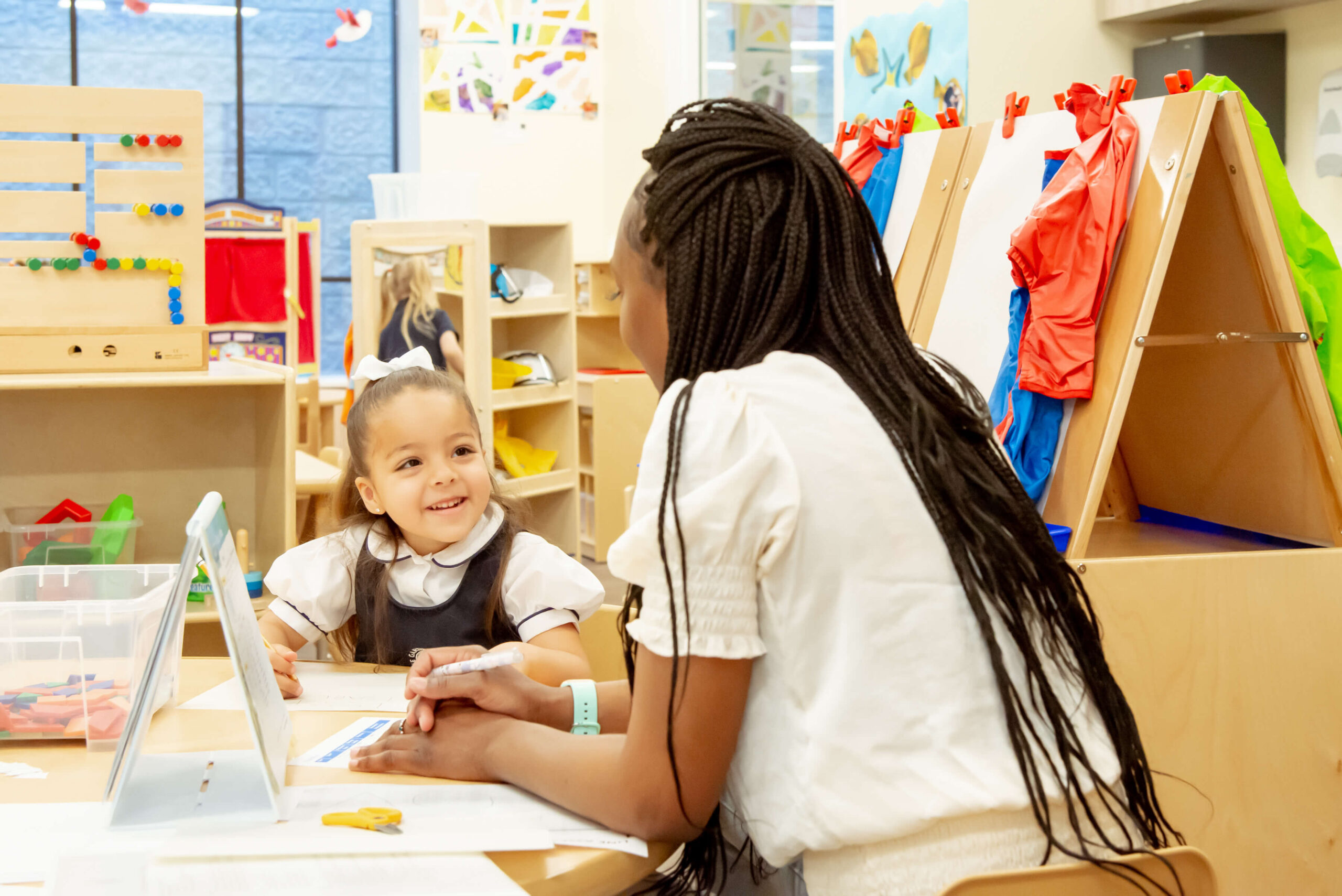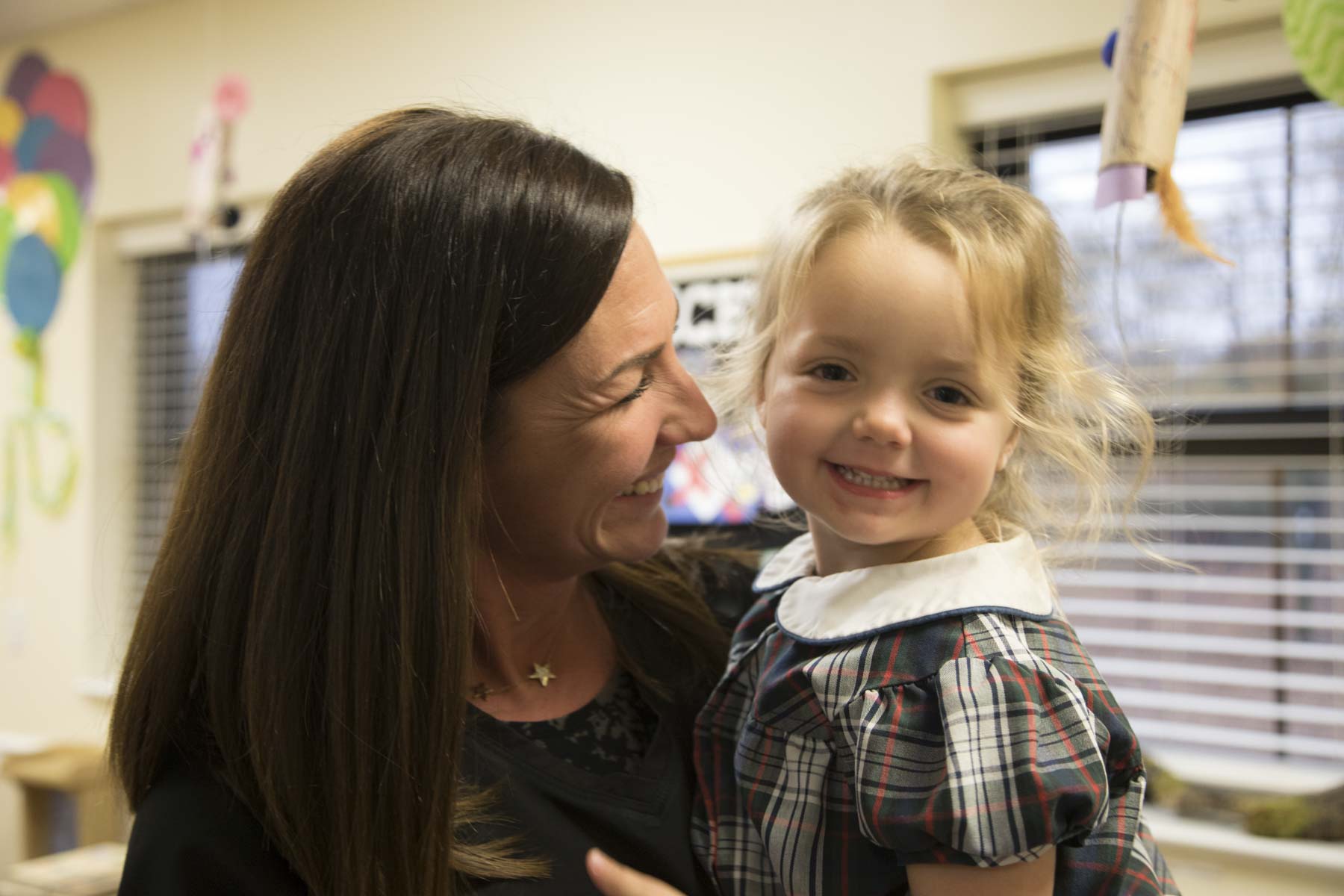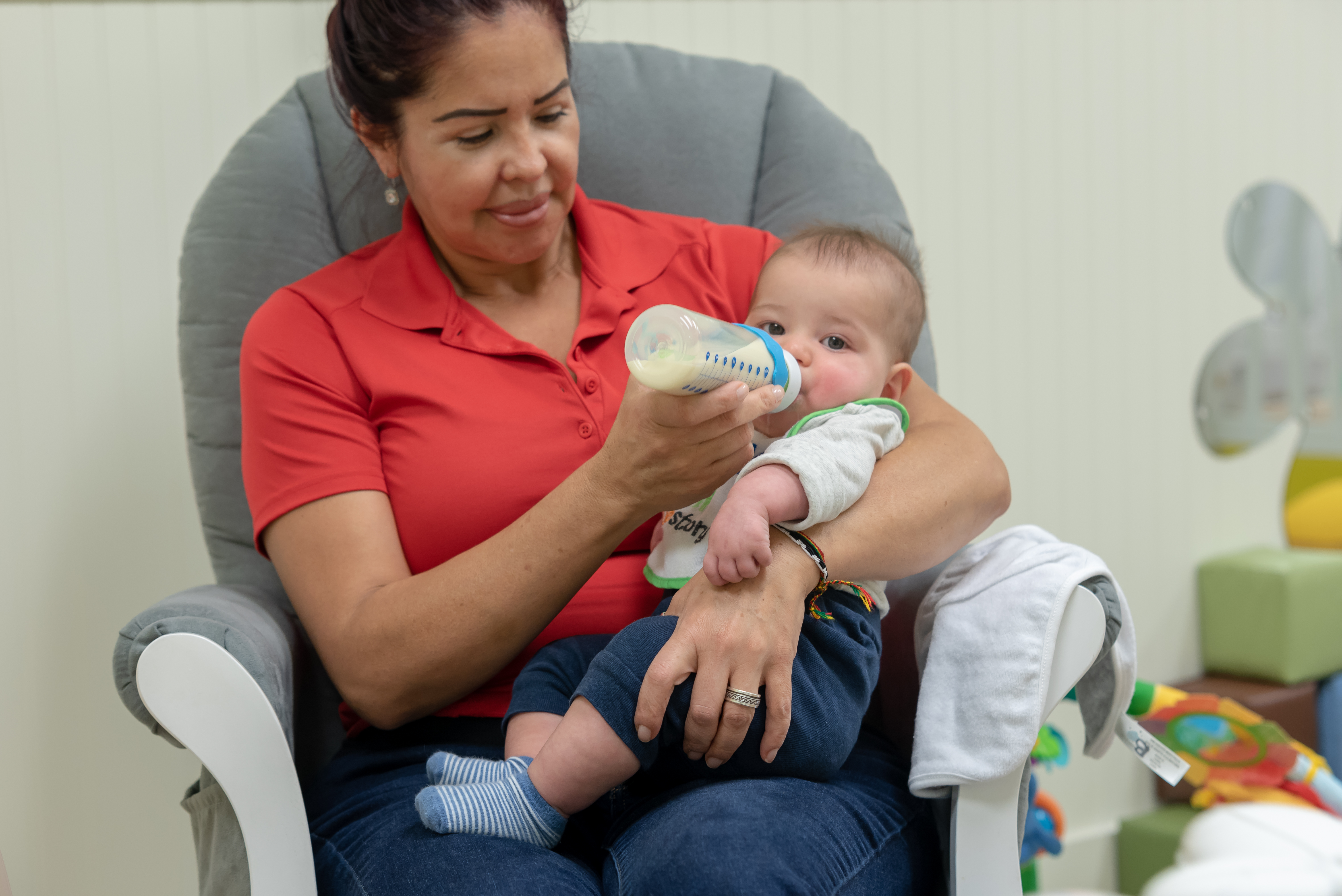
How does my child play and interact with others at preschool? How have they grown in the past six months academically, emotionally, and socially? What developmental milestones should I expect to see coming up?
We often get these types of questions from parents, and we’re always happy to provide answers and insight! Being a trusted partner and resource for parents is one of the most valuable things we can do as an early childhood education center.
There have been countless studies on the value that parent and family involvement plays in a child’s formal education. But, we believe that parent involvement is just as valuable, if not more, at the early childhood education level. In fact, we’ve seen firsthand that sharing assessments and progress reports helps parents play an even more active role in their child’s development! Not only do parent-teacher conferences share updates on how students are progressing, but they also allow parents to understand their child’s unique strengths.
The Benefits of Assessments and Progress Reports in Preschool
Whether your child is just learning to walk or getting ready to start school, there is important information to be learned at every level. Here are a few specific reasons we believe in the value of regular child assessments and progress reports:
1. Progress reports track your child’s growth in every area.
Assessments and progress reports provide a record of your child’s growth in all developmental areas: cognitive, physical, and motor development, language, social-emotional skills, and approaches to learning. While it may seem like time is flying by, progress reports provide a snapshot of the specific ways your child has grown in the past three to six months.
2. Progress reports help parents and teachers discuss student growth.
Every child has areas of natural giftedness and areas where they’re still developing. Assessments and progress reports shared at a parent-teacher conference allow parents to see our plans to enhance specific skills or subjects. Each conversation serves as a common ground between educators and parents that they can use as they collaborate on ways to support their child. This collaborative effort between teachers and parents can truly help your child thrive!
3. Progress reports create opportunities to engage with your child.
By outlining the specific things your child is learning at school, progress reports provide new ways for you to relate school activities to home activities and experiences. Whether you want to be more intentional about reading with your children before bed, or you’re looking for ways to incorporate learning into everyday tasks, assessments and progress reports help you know the specific things your child is learning at school, and they provide insights to help you create a holistic learning environment for your child.
The TGS Curriculum
At The Gardner School, we use a blended selection of research-based curriculums that support your child’s intellectual growth and make learning a joyful experience! Our curriculum is diverse enough to meet the needs of every student and our enthusiastic teachers are committed to helping each child thrive academically, emotionally, and socially. Each learning program is broken down by age and reflects the belief that children need a balance of daily child-initiated and teacher-facilitated activities. That’s why free play and guided play are an essential part of our daily schedule.
Tracking Milestones
Our curriculum allows for careful observation by teachers and a variety of instructional strategies that cater to the individual needs of each student. We also conduct regular student assessments to ensure your child’s progress aligns with developmentally appropriate benchmarks.
By carefully evaluating each child’s growth, teachers can tailor lessons to address areas of giftedness or target skills where improvement may be needed.
TGS Parent/Teacher Assessments and Conferences
In addition to phone calls and daily communication through our parent communications app, The Gardner School conducts multiple assessments and conferences throughout the year. So, what can you expect to learn in a conference with your child’s teacher? Here’s an outline of the information we review with parents:
- Your child’s strengths in social-emotional skills, physical capacity, language recognition, and cognitive development.
- Your child’s strengths in literacy, math, science and technology, social studies, and the arts.
- Discuss plans to support your child’s development and learning.
Conferences with parents for our infants, toddlers, and two-year-olds are held in the spring and fall, with a mid-year update provided to parents in January. We also hold preschool conferences twice a year (spring and fall) for our two-and-a-half-year-old to kindergarten-aged students.
Helping Children Thrive
TGS provides students with a strong foundation for intellectual growth, and the benefits extend far beyond academics. We’d love to discuss how we partner with families to help children reach their full potential and develop a love for learning. Contact us with questions or to schedule a tour at The Gardner School nearest you.




